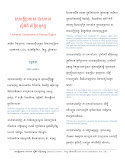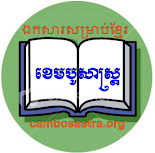CEDAW
signed by Cambodia in 17 Oct. 1980, acceded to on 15 Oct. 1992
The Convention on the Elimination of All Forms of Discrimination against Women (CEDAW), adopted in 1979 by the UN General Assembly, is often described as an international bill of rights for women. Consisting of a preamble and 30 articles, it defines what constitutes discrimination against women and sets up an agenda for national action to end such discrimination.
PART I
Article 2
States Parties condemn discrimination against women in all its forms, agree to pursue by all appropriate means and without delay a policy of eliminating discrimination against women and, to this end, undertake:
(a) To embody the principle of the equality of men and women in their national constitutions or other appropriate legislation if not yet incorporated therein and to ensure, through law and other appropriate means, the practical realization of this principle;
(b) To adopt appropriate legislative and other measures, including sanctions where appropriate, prohibiting all discrimination against women;
(c) To establish legal protection of the rights of women on an equal basis with men and to ensure through competent national tribunals and other public institutions the effective protection of women against any act of discrimination;
(d) To refrain from engaging in any act or practice of discrimination against women and to ensure that public authorities and institutions shall act in conformity with this obligation;
(e) To take all appropriate measures to eliminate discrimination against women by any person, organization or enterprise;
(f) To take all appropriate measures, including legislation, to modify or abolish existing laws, regulations, customs and practices which constitute discrimination against women;
(g) To repeal all national penal provisions which constitute discrimination against women.

























No comments:
Post a Comment